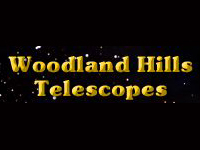GAM Dark Skies Awareness Programs
The growing loss of dark night skies for much of the world's population is a serious issue. And it's not just astronomical research that suffers. Light pollution affects human health, ecology, safety, security, economics, and energy conservation. According to the United Nations more than half of the world's population live in cities. Many have never seen the Milky Way because of light pollution where they live.
GAM Dark Skies Awareness programs are intended to raise awareness of the importance of preserving our night skies.
To encourage others to take part in these events we suggested people organise a Flashmob for Science. This is where a group of people gather together at the same place and time to perform citizen science observations. For pointers on organising your own Flashmob for Science read these instructions.
We also encouraged everyone to share their experiences with the world on Facebook or the Flickr group and Tweet using #GAM2016 (@gam_awb).
March 29 - April 30 Enter the 7th International Earth and Sky Photo Contest on Dark Skies Importance. There will be up to 10 winners over two categories with the top prize usually a telescope. This is the 6th year the contest has run internationally and we are expecting it to be bigger than ever! Coordinated by The World At Night (TWAN), in conjunction with GAM 2016 and the National Optical Astronomy Observatory , the contest is open and free to anyone of any age, anywhere around the world. Submissions accepted from March 22 until April 22. The winners will...
Read more...
March 30 - April 8 and April 29 - May 8, 2016 Join the Worldwide Globe at Night 2016 Campaign What would it be like without stars at night? What would we lose? Starry night skies have given us poetry, art, music and the wonder to explore. A bright night sky affects energy consumption, health, and wildlife. The Globe at Night program is an international citizen-science campaign to raise public awareness of the impact of light pollution by inviting citizen scientists to measure their night-sky brightness and submit their observations from a computer or smart phone. Students and scientists use...
Read more...
April 4-10, 2016 Celebrate the stars! Created in 2003 by high-school student Jennifer Barlow, International Dark Sky Week (IDSW) has grown to become a worldwide event and a key component of Global Astronomy Month. The goals of IDSW are to appreciate the beauty of the night sky and to raise awareness of how poor-quality lighting creates light pollution.
Read more...








